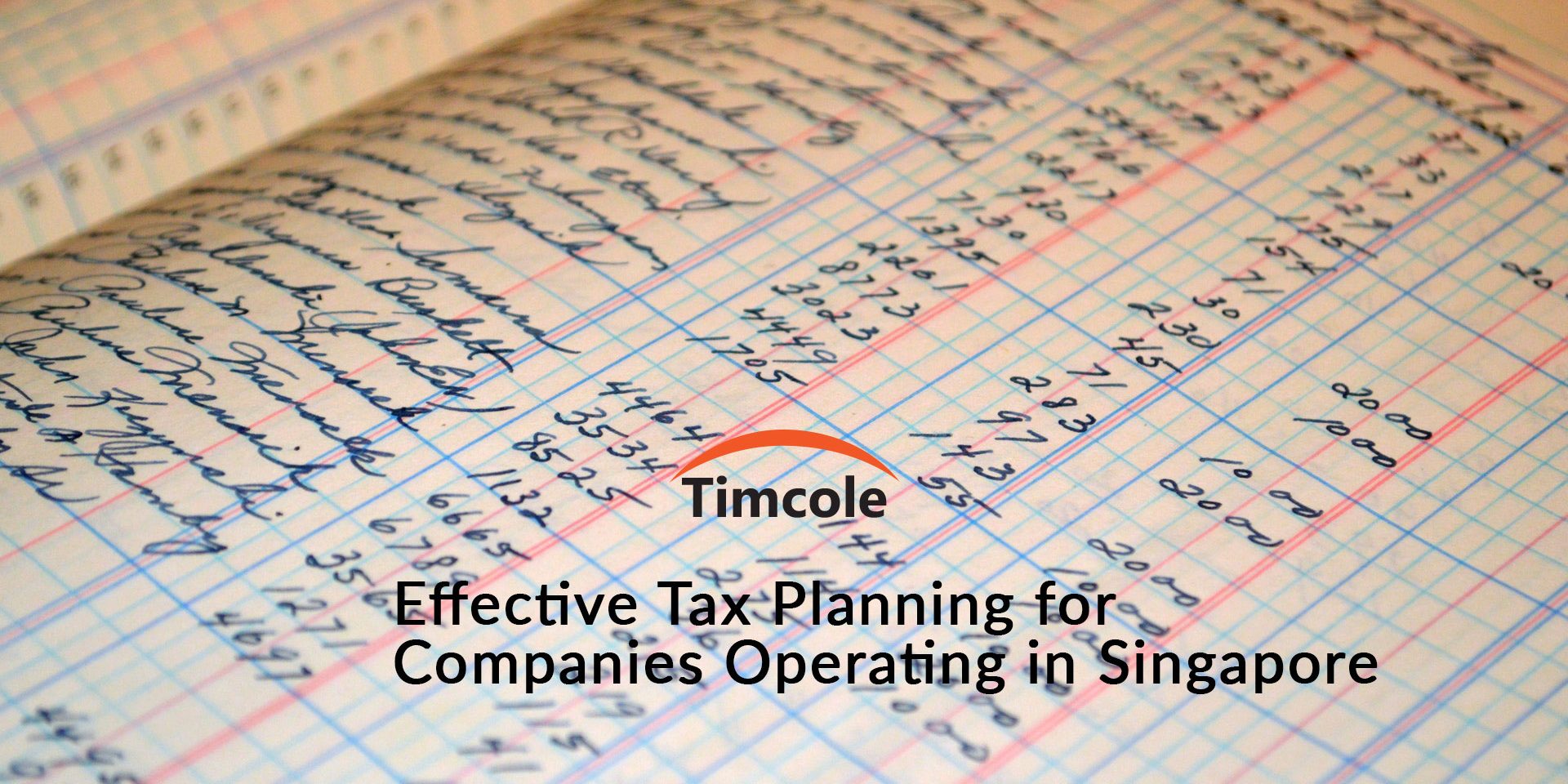Effective Tax Planning for Companies Operating in Singapore
Cases of multinational corporations (MNCs) moving to tax havens have been increasing publicized over the recent years. MNCs are taking advantage of the flexibility afforded by technology, which has enabled them to restructure their businesses to suit the stipulations of tax havens.
Why the Mass Migration to Tax Havens?
Most major MNCs hail from developed Western countries. Most of these countries have high corporate tax rates that MNCs consider unsustainable. Here is a peak into the corporate tax rates of various developed countries:
| Country | Corporate Tax Rate |
| United States | 40% |
| France | 33.33% |
| Italy | 31.4% |
| Australia | 30% |
| China | 25% |
| United Kingdom | 23% |
In contrast, tax havens, such as the Cayman Islands and Bermuda, charge 0% corporate tax. It is hence now wonder that major corporations such as Google have been moving some of their operations to these countries.
Case Examples
Nike is one of the many MNCs that have undertaken massive restricting measures to take advantage of tax havens. The corporate has a presence in 120 countries. For operations that would attract taxation, such as manufacturing of its shows, the company looks to developing countries with favorable terms such as Vietnam. For logistics, which do not attract substantial taxes, the company looks to developed countries such as the U.S. and China.
Google has come under the most scrutiny, perhaps because it has dodged billions of dollars in taxes by exploiting tax havens – it is reported that in 2011 alone, Google avoided about $2 billion in global taxes by exploiting Bermuda’s tax haven incentives. Big tech companies, such as Apple and Facebook, have also been doing the same.
Increasing Public Scrutiny
Big MNCs have been blamed for the runaway capitalism that many say is widening the wealth gap. Revelations that these corporations have been dodging billions-worth of taxes have, hence, fueled a lot of scrutiny and criticism from the public and governments that feel disenfranchised.
For instance, Google has come under scrutiny from major governments in Europe, including France, Germany, and Italy. Audits into the company have disrupted its operations and led to the seizure of its important files. Australia has also been conducting its investigations, and it has widened its scope to include tech giants Apple and Microsoft as well as about 30 more MNCs with a stake in the country.
A Change of Strategy
MNCs have realized that they cannot keep up with the public criticism and ongoing investigations by Western governments. Nevertheless, they cannot afford to pay the heavy corporate taxes imposed on them by these countries. So, they have come up with a compromise: move operations to intermediate countries that are not tax-free but have attractive tax incentives. Singapore is one of the top choices for these MNCs.
Taking Advantage of Singapore’s Dynamic Financial System
Singapore is one of the fastest upcoming financial hubs in Asia and the world. The nation-state has a robust financial system and healthy economy – and, in spite of its size, it is home to 125 commercial banks to accommodate its economy’s appetite. In fact, Singapore’s tax system ranked 5th globally in terms of convenience and simplicity, according to research conducted by the World Bank. In contrast, the U.S. ranks 47th while Germany ranks 68th.
Singapore’s robust economy is a good enough to set up shop here. However, MNCs have particularly taken note of Singapore’s flat corporate tax rate. The rate, which currently stands at 17%, is one of the lowest in the world. Again, this is a great incentive for MNCs to move operations here, but that is not all Singapore has to offer. Other important incentives to note are:
Bilateral Tax Treaties
Corporates are often forced to pay double taxes when operating in two countries simultaneously. Singapore is on a mission to boost its economy by attracting more foreign investment. It has taken the initiative to negotiate bilateral tax treaties with about 76 countries, including countries where most MNCs operate. This means that MNCs operating in Singapore do not have to pay twice.
 Want to start a business in Singapore?
Want to start a business in Singapore?
Check out our useful links to get you started:
Foreign Tax Credit (FTC)
The FTC program is incentive enough to set up shop in Singapore. This scheme allows corporates to claim tax credits for taxes paid to other countries for certain types of income. However, the corporations have to repatriate the income earned in foreign countries to Singapore. The corporations also have to meet three crucial conditions:
- The corporation has to be a tax resident of Singapore for that Year of Assessment (YA)
- The taxes in questions should be payable on the same income in the said foreign country
- The said income is subject to taxation in Singapore
 Need a professional to evaluate your current company taxation status?
Need a professional to evaluate your current company taxation status?
Timcole provides professional accounting services catered and customized to all industries. Contact us to learn more.
The FTC scheme also has a pooling system that is set to benefit MNCs with operations in multiple countries. Under this pooling scheme, corporations will be able to claim a wide range of tax credits. However, the following conditions have to be met:
- The tax paid to the foreign company has to be for income that the corporation earned in the said company
- The headline tax rate (highest corporate tax rate) of the said foreign country, where the corporation generated its income, should have been at least 15% when the income was repatriated to Singapore
- The company should be qualified to claim for FTC tax benefits under the Income Tax Act
- There should be tax payable to Singapore in the repatriated income
The FTC pooling scheme is guaranteed to simplify MNCs operations as they try to juggle between meeting different countries’ stipulations.
Other Tax Credits and Incentives
Besides a flat corporate tax rate, bilateral tax treaties, and the FTC tax pooling scheme, Singapore also provides corporations a wide range of extra tax credits and incentives. They include:
- Start-up Tax Exemption
- Partial Tax Exemption
- Productivity and Innovation Credit Scheme
- International/Regional Headquarters Award
- Land Intensification Allowance
- Mergers & Acquisitions Scheme
- Pioneer Incentive
- Development and Expansion Incentive
- Finance & Treasury Center Tax Incentive
- Aircraft Leasing Scheme
- Research Incentive Scheme
- Initiatives in New Technology
- Land Productivity Grant
Final Word
Singapore is rightly considered one of the world’s best financial hubs for good reasons. For multinational corporations, Singapore provides a compromise between tax evasion and proper tax planning.
About Timcole
Timcole is one of the leading company incorporation and accounting firm based in Singapore. Our wide range of professional services serve as a one-stop solution for your business, offering you the most affordable price for services conducted with the highest level of excellency.
Contact us to find out more on how we can help you with your company today.








